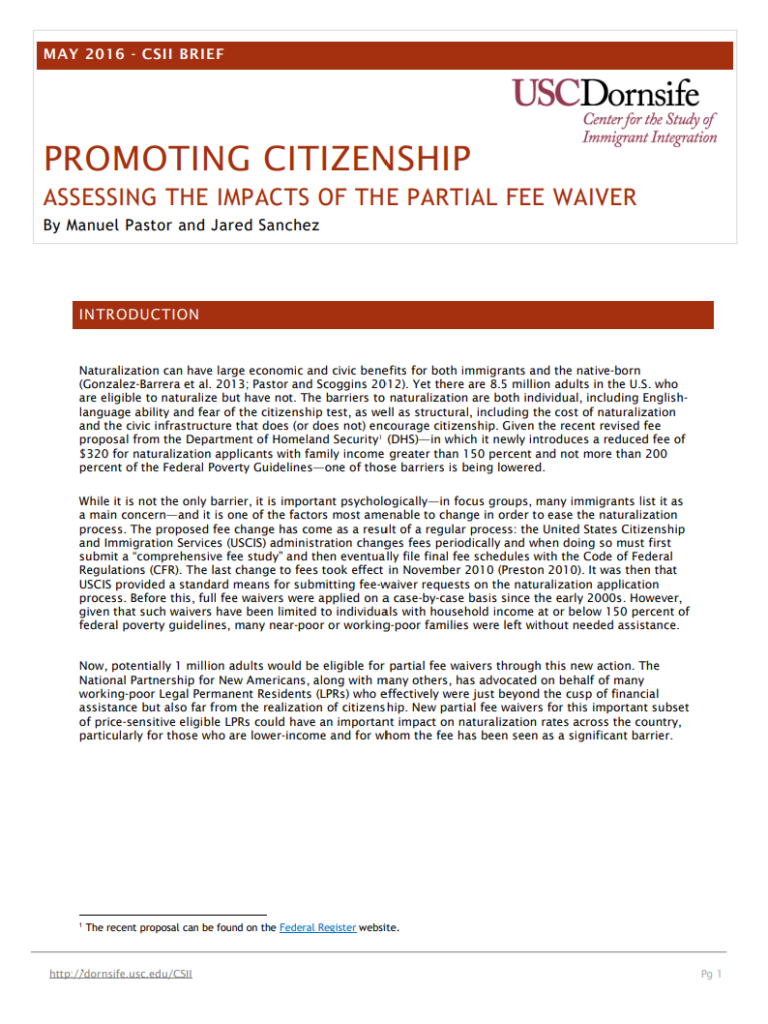
May 6, 2016
By Manuel Pastor and Jared Sanchez
Please note: reports dated earlier than June 2020 were published under our previous names: the USC Program for Environmental and Regional Equity (PERE) or the USC Center for the Study of Immigrant Integration (CSII).
The United States Citizenship and Immigration Services (USCIS) recently announced a proposed rule adjustment to their fee schedule, which includes a fee reduction of $320 for naturalization applicants with family incomes between 150 and 200 percent of the Federal Poverty Guidelines.
CSII calculated that approximately 1 million of the 8.8 million people who are eligible for citizenship will be eligible for the partial fee waiver.
This brief examines the impact of the partial fee waiver by offering estimates including: the number of the eligible-to-naturalize populations by poverty band (for all 50 states), the number by countries of origin and poverty status, and more.
Also included are maps displaying CSII’s estimates of the partial fee waiver eligible adult, which can serve as tools to assist ongoing naturalization efforts being conducted on-the-ground. We focus on four areas in the U.S. with the largest populations of partial waiver eligible adults: Southern California, California Central Valley, New York City region, and South-Central-East Texas.
Naturalization brings economic and civic benefits to both immigrant and the native-born alike. With the new partial fee waivers, 12 percent of the nation’s eligible-to-naturalize adults are better able to break through the cost barrier and we as a nation are better-positioned to realize those potential gains.



